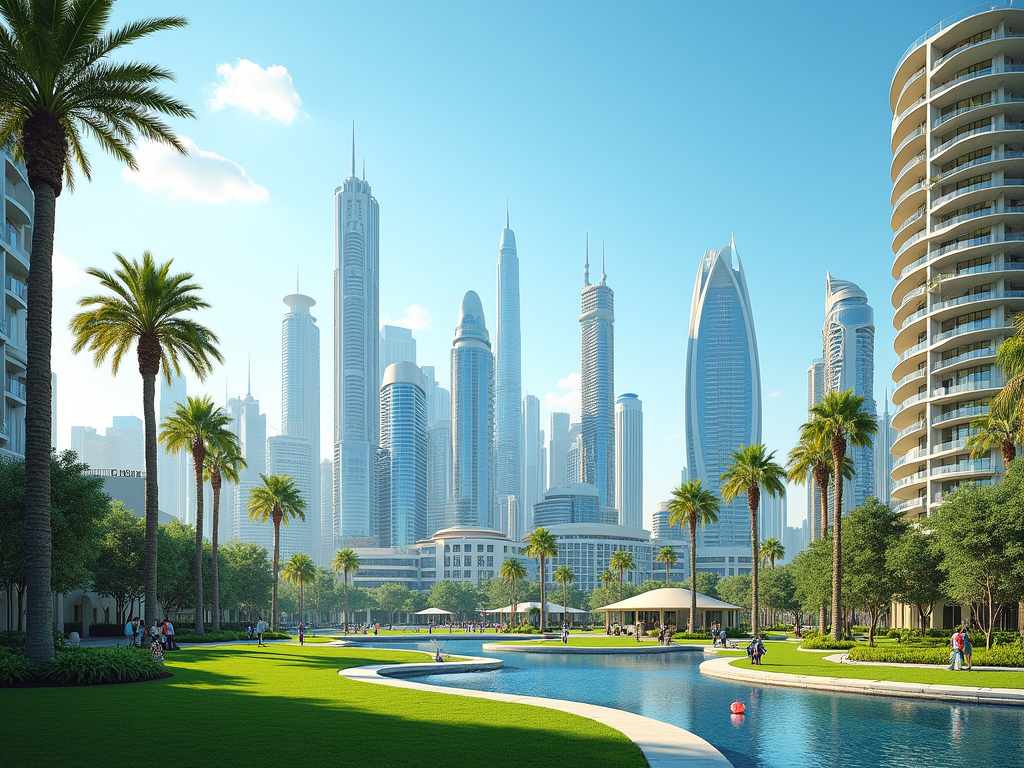Dubai’s real estate market has become a beacon for investors worldwide, offering lucrative opportunities that are hard to ignore. With its rapid development, tax benefits, and strategic location, investing in Dubai’s real estate can yield impressive returns. Whether you’re looking into residential properties, commercial spaces, or development projects, there’s something to cater to every investor’s appetite. This article explores the diverse facets of the real estate landscape in Dubai, highlighting key opportunities and critical considerations for prospective investors.
Why Invest in Dubai’s Real Estate?

Dubai’s real estate market is known for its rapid expansion and innovative projects, making it a hotspot for both domestic and foreign investors. The following factors make Dubai an attractive investment destination:
- Economic Stability: Dubai boasts a diversified economy backed by sectors such as tourism, trade, and finance.
- Tax Benefits: There are no property taxes or capital gains taxes in Dubai, allowing investors to retain more of their profit.
- High Rental Yields: The rental yields in Dubai can reach up to 8-10%, significantly higher than many global cities.
- Regulatory Framework: The UAE government has implemented robust regulations to protect real estate investors.
- Global Accessibility: Dubai’s strategic location makes it a prime hub for business and tourism, ensuring continuous demand in the property market.
Types of Properties Worth Considering

Investors in Dubai can explore various types of properties, each offering unique benefits and opportunities. Here are some significant property types to consider:
- Residential Properties: Includes apartments, villas, and townhouses, suitable for long-term rentals and capital appreciation.
- Commercial Properties: Office spaces, retail shops, and warehouses, which tend to provide higher returns and longer lease agreements.
- Off-Plan Properties: Pre-construction or off-plan projects that can offer substantial discounts and the potential for value appreciation upon completion.
- Luxury Properties: High-end real estate, such as penthouses and exclusive villas, which cater to affluent buyers and tend to hold their value well.
- Mixed-Use Developments: Properties that combine residential, commercial, and retail spaces, offering diversified income streams.
Potential Risks to Consider
While the prospects in Dubai’s real estate market are promising, investors should also be aware of potential risks that come with property investment. These include:
- Market Volatility: Fluctuations in demand and pricing can impact returns, especially in cyclical markets.
- Regulatory Changes: Changes in government policies and ownership laws can affect investors’ rights and property values.
- Property Management: Poor property management can lead to increased costs and decreased tenant satisfaction, impacting profitability.
- Financing Challenges: While financing options are available, the terms may vary, and investors should be prepared for potential interest rate increases.
- Oversupply Concerns: Rapid construction may lead to an oversaturated market, making it essential to research before committing.
For successful investment in Dubai’s real estate market, conducting thorough market research is essential. Here are steps to follow:
- Understand Market Trends: Keep track of market reports and statistics to understand property price movements and rental yields.
- Visit Developments: Touring potential investment properties can provide insights into construction quality and area amenities.
- Engage Local Experts: Partner with real estate agents and consultants familiar with the Dubai market to guide you through the complexities.
- Evaluate Property Locations: Research different neighborhoods to identify growth areas and their future development plans.
- Consider Exit Strategies: Exploring potential exit strategies will clarify the investment’s long-term viability and liquidity.
Conclusion
Investing in Dubai’s real estate market offers numerous opportunities for significant returns, backed by an array of favorable economic conditions and investment options. The diverse range of properties, combined with robust regulations and attractive tax benefits, set the stage for both short-term and long-term investment success. However, like any investment, potential risks should be carefully evaluated, and thorough market research conducted to make informed decisions. With proper planning and insight, investors can take advantage of the dynamic potential that Dubai’s real estate market has to offer.
Frequently Asked Questions
1. Is it safe to invest in Dubai’s real estate market?
Yes, Dubai has a well-regulated real estate market with government protections for investors, making it relatively safe for investment.
2. What types of properties offer the best returns?
Residential properties often provide high rental yields, but commercial properties, particularly in prime locations, can offer even higher returns.
3. Are there any taxes on property purchases in Dubai?
No, there are no property taxes, and capital gains taxes do not exist in Dubai, making it an attractive investment destination.
4. What is the process for buying property in Dubai?
The process typically involves selecting a property, securing financing if necessary, and registering the property with the Dubai Land Department.
5. How do I manage a rental property in Dubai?
You can manage a rental property yourself or hire property management companies that specialize in overseeing all aspects of rental operations.
